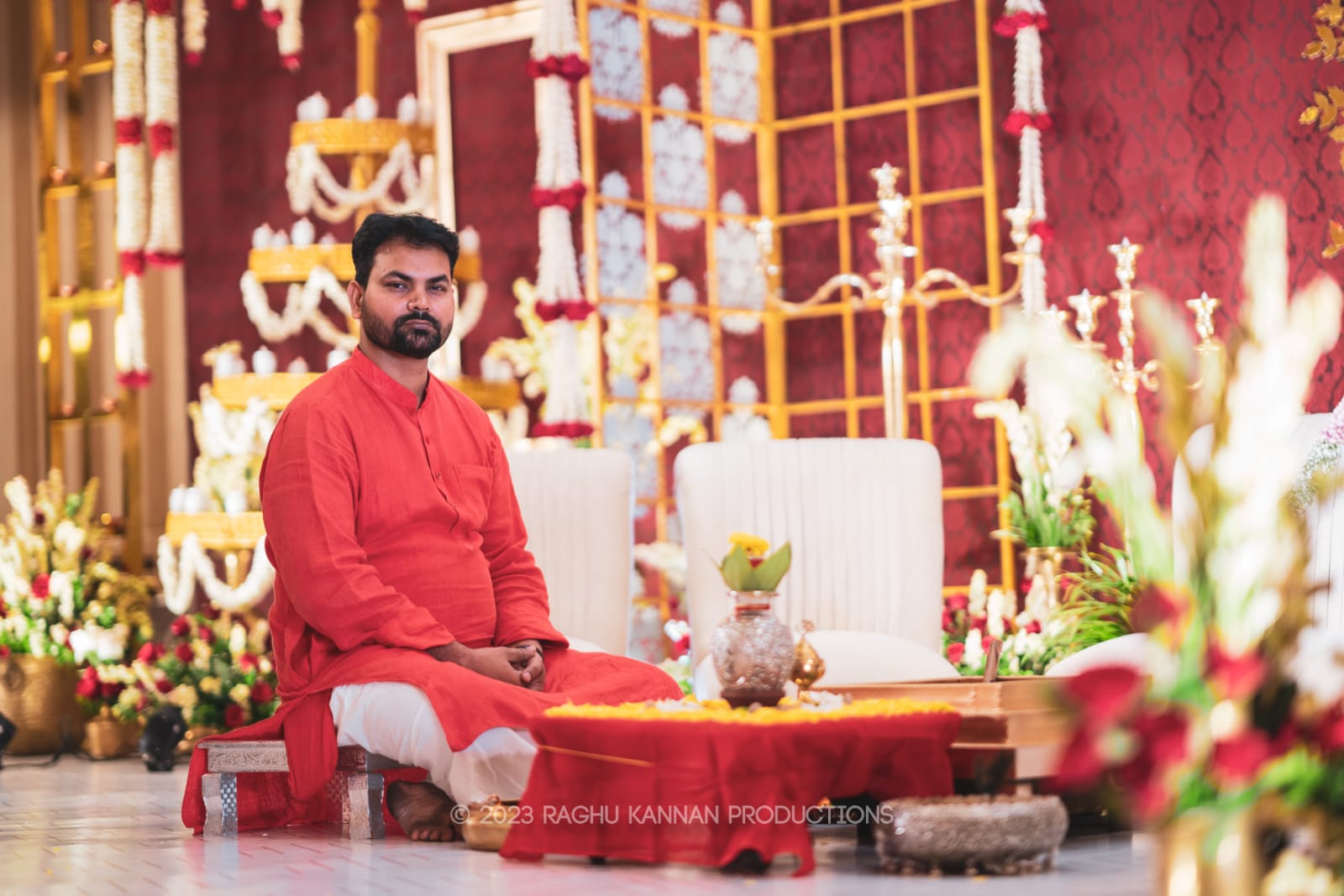Lucknow, a city known for its composite culture and history, continues to embrace both tradition and reform in its social practices. Among the institutions that embody this balance is Arya Samaj, a reformist Hindu movement founded in 1875 by Swami Dayanand Saraswati. Today, Arya Samaj Mandirs in Lucknow play an important role in conducting marriages, promoting education, offering social services, and spreading awareness about equality and rational thinking.
Acharya Aniruddh Chaturvedi, a respected priest and preacher who has been associated with Arya Samaj in Lucknow for over 25 years, says the organization continues to fulfill its founder’s vision by blending spirituality with social responsibility.
Origins and Philosophy of Arya Samaj
Swami Dayanand Saraswati established Arya Samaj with a clear mission: to free Hindu society from superstitions, meaningless rituals, and exploitative customs. He considered the Vedas as the highest religious texts and opposed practices such as idol worship, caste discrimination, and blind faith in self-proclaimed spiritual leaders.
Arya Samaj became a powerful reformist force in 19th and 20th century India. It championed women’s education, fought against Sati Pratha, and promoted widow remarriage. Its guiding principle was to replace superstition with knowledge, and ritualism with rationality. Over time, the movement expanded into fields such as education, healthcare, and community service.
Even today, Arya Samaj runs schools, colleges, hospitals, and libraries across India, while continuing to emphasize moral values, scientific outlook, and social equality.
Simplicity of Arya Samaj Marriages
One of the most visible contributions of Arya Samaj in contemporary times is the solemnization of marriages. Arya Samaj Mandir marriages are known for their simplicity and adherence to Vedic traditions. Instead of grand displays of wealth, these ceremonies emphasize spiritual commitment.
The rituals include chanting of Vedic mantras and performing a Yagya (sacred fire ritual). The bride and groom take the traditional Saptapadi—seven rounds around the sacred fire—while promises of loyalty, companionship, and mutual respect are exchanged.
Acharya Chaturvedi notes that Arya Samaj marriages explicitly oppose caste-based restrictions and the culture of excessive expenditure. “Marriage is about the unity of two individuals and their families, not about caste divisions or financial show-off,” he explains.
Documents and Legal Standing
For couples seeking to marry in an Arya Samaj Mandir in Lucknow, a few basic documents are required. These include identity proof such as Aadhaar card, passport, or voter ID; address proof; birth certificate; PAN card; and in cases of divorce or widowhood, the relevant legal certificates.
While the marriage itself is solemnized in the Mandir, the law requires it to be formally registered with the marriage registrar’s office. Once registered, the couple receives a government marriage certificate, which has legal standing in courts, banks, and other institutions. This dual recognition—religious and legal—makes Arya Samaj marriages both convenient and secure.
Activities of Arya Samaj in Lucknow
According to Acharya Aniruddh Chaturvedi, Arya Samaj in Lucknow is not limited to conducting marriages. “We are engaged in all aspects of spiritual and social life,” he says. Regular activities at Arya Samaj Mandirs include:
●Weekly satsang (spiritual gatherings)
●Daily havan (ritual fire offering)
●Conducting marriages and other rites such as naamkaran (naming ceremony) and shuddhi (purification)
●Religious book sales and reading rooms for the public
●Ayurvedic medical services
●Yoga classes and training
Chaturvedi emphasizes that the Arya Samaj Mandir in Lucknow is not just a religious place but also a community hub where people can access education, health support, and spiritual guidance.
A Bridge Between Tradition and Reform
The relevance of Arya Samaj marriages today lies in their ability to strike a balance between ancient values and modern legal frameworks. By following Vedic rituals while ensuring compliance with Indian marriage laws, Arya Samaj Mandirs provide couples with a dignified yet practical path to marriage.
In an era when weddings often involve enormous expenditure and rigid social barriers, Arya Samaj presents an alternative rooted in equality and reason. Social reformers in Lucknow believe that the steady popularity of Arya Samaj marriages reflects changing attitudes among the youth, who increasingly seek meaning over display.
Contact and Awareness
For those interested in Arya Samaj marriages or other activities in Lucknow, Acharya Aniruddh Chaturvedi remains a central figure. With more than two decades of experience in Vedic rituals and community outreach, he is widely recognized for his role in spreading the ideology of Arya Samaj.
“Swami Dayanand Saraswati wanted a society free from superstition and inequality. Our duty is to carry that mission forward,” Chaturvedi says. He adds that anyone who wishes to understand Arya Samaj’s work should visit their Mandir, attend a satsang, or directly seek guidance from its priests.
Continuing Legacy
Nearly 150 years after its founding, Arya Samaj continues to influence Indian society. In Lucknow, its Mandirs serve not just as places of marriage but as centers of education, healthcare, and social reform. For many, Arya Samaj offers a way to practice faith without blind ritualism, and to embrace spirituality while promoting social justice.
As Acharya Aniruddh Chaturvedi puts it: “Arya Samaj is not about rejecting tradition—it is about purifying tradition with the light of knowledge.”

